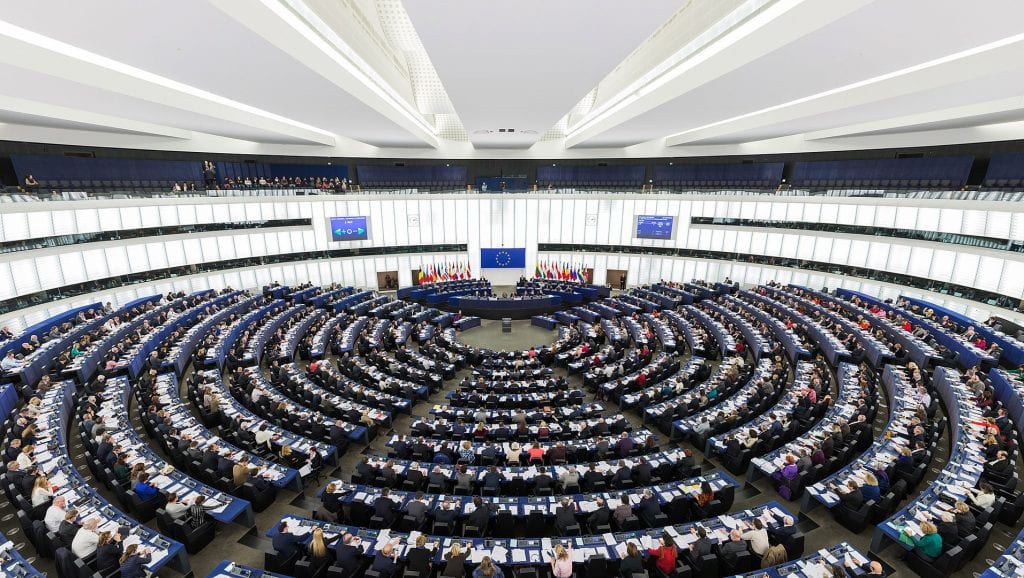Europe
Brussels: The European Union is ready to help pharmaceutical companies increase production of coronavirus vaccines. Any delay in the release of approved vaccines was due to a lack of production capacity, not EU planning, Health Commissioner Stella Kyriakides told German news agency DPA
The EU and China agreed "in principle" Dec. 30 on an investment deal that will give European companies greater access to Chinese markets and help fix what Europe sees as unsustainable economic ties. EU leaders and Chinese President Xi Jinping approved a major investment pact despite human rights concerns in China.
Poland has opposed the "sudden" acceleration of the EU-China investment agreement at a meeting of member state ambassadors. Speaking to PAP, Polish Ambassador to the EU Andrzej Sadoś noted that Poland stressed the importance of geopolitical issues at the meeting as part of EU negotiations with China. "This is an unprecedented situation. In the last days of the German presidency we have a sudden, unjustified acceleration of a very important issue that concerns international relations. That is why we have raised our doubts about this situation" - Sadoś pointed out.
Western Europe
United Kingdom: Scotland's First Minister Nicola Sturgeon on Saturday told the European Union "we hope to join you soon as an independent country after Britain leaves the bloc altogether. "As an independent member of the European Union, Scotland would be a partner and a bridge-builder," she wrote on her party's website. An overwhelming majority of Scots voted to remain in the European Union during the 2016 referendum on so-called Brexit.
"In my experience (...) referendums in this country are not particularly joyful," British Prime Minister Boris Johson said on Sunday. "They don't have a particularly unifying force in national sentiment, they should only happen once in a generation," he argued on the BBC. Scotland voted to remain part of the United Kingdom in 2014.
Visegrad Group
Hungary: Hungary is unlikely to use a Russian vaccine for coronavirus because of limited production capacity, Prime Minister Viktor Orbán said on Sunday, criticizing the EU's approach to vaccine procurement. Often quarreling with Brussels over democratic standards, Orbán has sent experts to monitor vaccine development in Russia and China and received samples of Moscow's controversial Sputnik V vaccine.
Balkans
Serbia: Serbian President Aleksandar Vučić on Friday opened part of a Russian gas project running through his country and hailed it as crucial to energy supply security. The 403-kilometer stretch - from Zajecar in eastern Serbia to Horgos on the border with Hungary - is part of the larger TurkStream pipeline, which delivers Russian natural gas to Turkey and Central Europe.
Bosnia and Herzegovina: The living conditions of hundreds of homeless migrants in Bosnia bordering the European Union are "totally unacceptable," EU envoy Johann Sattler said on Saturday. The migrants have been left homeless in freezing and rainy conditions since their camp near the northwestern town of Bihac burned down last month.
Northern Europe
Norway: Norwegian rescuers deployed drones and dogs to cross unstable clay soil in search of 10 people still missing Thursday, Dec. 31, after a landslide in southern Norway swept away more than a dozen buildings the previous day. Ten people were injured, including one in critical condition.
WORLD
USA: Police in Miami-Dade, Florida, are investigating two separate shootings that injured 12 people. The first occurred in Little River Park at 7:07 p.m. (0007 GMT), according to authorities. NBC News reported that two unidentified thugs began shooting at people near a basketball court. Six people were seriously injured. Police reported that four people were wounded in another shooting in Allapattah. The victims were transported to Jackson Memorial Hospital Ryder Trauma Center in stable condition.
Kazakhstan: President Kassym-Yomart Tokayev has signed a decree abolishing the death penalty in Kazakhstan, according to a statement issued by his office on Saturday. The new law perpetuates an existing moratorium on state executions, introduced in 2003 by the country's President Nursultan Nazarbayev.
Japan: Prime Minister Yoshihide Suga announced that he is considering declaring a state of emergency for the Greater Tokyo metropolitan area as coronavirus cases rise, casting new doubt on whether he can speed up the Olympic Games and keep economic damage to a minimum.
SM



